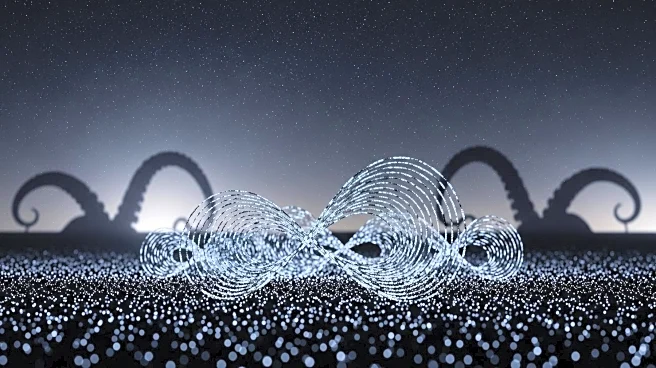What is the story about?
What's Happening?
NPR's Short Wave science podcast has highlighted three intriguing scientific stories: mysterious red dots in space, the brain's response to optical illusions, and octopus arm usage. The red dots, observed by the James Webb Space Telescope, challenge existing models of galaxy formation, suggesting new types of black holes. Optical illusions reveal how the brain fills in visual gaps, with implications for understanding perception-related disorders. The study of octopus arms shows no specialization but preferences for certain tasks, offering insights into flexible robotics.
Why It's Important?
These scientific discoveries have potential implications across various fields. The space dots could redefine astrophysical models and enhance our understanding of black hole formation. Insights into optical illusions may lead to breakthroughs in treating perception-related disorders like schizophrenia and autism. The octopus arm study could inspire advancements in robotics, particularly in creating flexible, adaptive machines for exploration and recovery missions. Each story underscores the importance of scientific inquiry in expanding human knowledge and technological capabilities.















